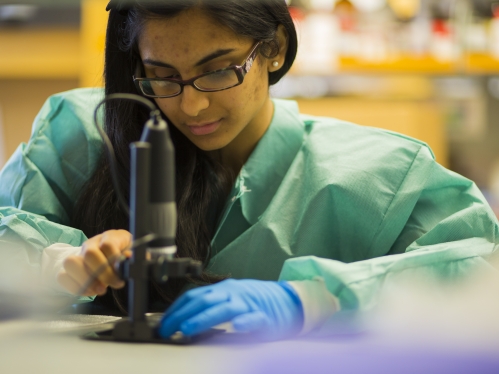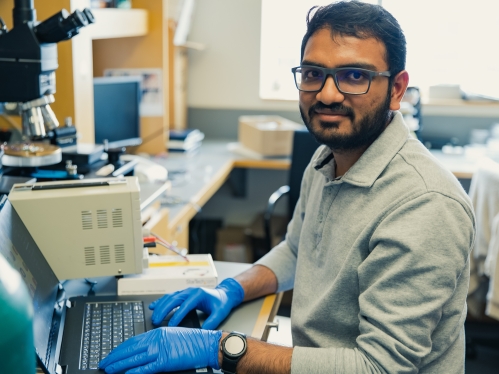Master of Engineering Degree
Degree Highlights
Rutgers School of Engineering’s Master of Engineering (ME) in Biomedical Engineering is a non-thesis-based degree program that allows students to earn a master’s degree in biomedical engineering without performing research or requiring a thesis. It is a convenient, flexible option for busy professionals looking to enhance their credentials with an advanced degree. In addition to coursework and training in bioengineering fundamentals, students complete and present a term paper, project, or independent study.

Applied Learning
A world-class faculty helps students master essential aspects of biomedical engineering that can lead to professional advancement and career success in a dynamic, rapidly growing field.
Students can study any of our key focus areas: molecular systems; nanosystems and microsystems; tissue engineering and regenerative medicine; biomechanics and rehabilitation engineering; physiologic systems; and bioinstrumentation, biomedical imaging, and neuroengineering. We also offer:
- A Certificate in Medical Device Development
- Courses in entrepreneurship
- Courses in a wide range of topics from multiple areas in biomedical engineering
Core Courses
Our core curriculum includes courses in:
- Bioimaging Methods
- Biosignal Processing and Biomedical Imaging
- Biocontrol, Modeling and Computation
- Kinetics, Thermodynamics and Transport
- Biomedicine
- Biomechanics and Materials
Advanced Courses
Advanced course offerings include:
- Mathematical Modeling for Biomedical Engineering
- Structure and Dynamics in Adult and Stem Cell Biology
- Medical Device Development
- Professional Development (3 courses)

ME Degree Requirements
- 33 credit program – 30 course credits and 3 non-thesis study credits
- Written terminal document
- Oral presentation of the terminal document

